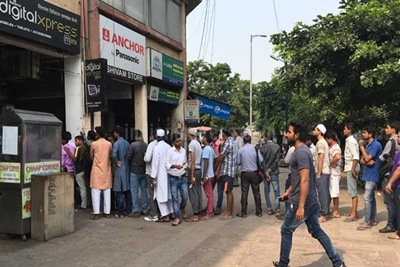Making bill payments is one of the major payment concerns in India, particularly in case of retail transactions. Currently, a large number of billers are providing multiple ways of payment options to their customers. Various organisations felt the need of having a single platform to make all these payments and bringing evolution in the bill payment ecosystem.
According to RBI, the top twenty cities are generating Rs 6223 billion through bill payments every year and more than 70% of these transactions are being carried out by cash and cheques predominantly.
You may also watch:
In addition, the current bill payment infrastructure in India is more of biller-specific in terms of modes of payment accepted and channels supported, which means people make their payments as per the bill amount and lots need to be done to support an ‘anytime, anywhere’ payment option to customers.
A government with the help of NPCI has launched a body named as Bharat Bill Payment System (BBPS) which will regulate and formalise the narrowing constraints occurring in current bill payment ecosystem.
What are the objectives?
Broadly, there are two objectives behind setting up the retail payment system.
* To integrate the multiple systems of retail payments across the nation-wide.
* To facilitate a reasonable payment mechanism to benefit all the citizens across the country and help financial inclusion.
What is NPCI?
RBI set up NPCI with its vision of forming an umbrella of organisation for the various retail payment systems in India. The body was set up under the guidance and support of RBI and the Indian Banker’s Association (IBA). Currently, NPCI has 10 promoter banks which are SBI, PNB, BOB, UBI, BOI, ICICI, HDFC, HSBC, Canara Bank and Citibank.
You may also watch:
How does BBPS function?
The Bharat Bill Payment System (BBPS) was set up to have a proper control over retail payments system. It functions as a tiered structure for operating the bill payment system in the country building a single brand image.
NPCI will function as the authorised Bharat Bill Payment Central Unit (BBPCU). It will be responsible for setting up the business standards, rules and procedures for technical and business requirements for all the participants. NPCI being the central unit of BBP, will also undertake clearing and settlement activities related to transactions routed through BBPS.
Existing bill collecting websites and banks are going to work as operating units to provide an interoperable bill payment system.
What are the modes of payment?
Payments can be made through BBPS via cash, cheque or electronic mode. All modes are accepted through BBPS. However, one should focus on digital payments because that will be a much time saving and convening mode for making payments.
You may also watch:
How does BBPCU work?
The BBPCU will act as an interface from a payment system perspective which will not own any financial transaction. It will work only as a medium to connect multiple billers and agents through various operating units. It will also help in resolving and monitoring the queries, requests and complaints raised by customers on time. In addition, it will set standards and ensure transaction security at various levels. It will independently measure the transaction convenience, security, reliability, affordability & accessibility with respect to customers confidential level.


